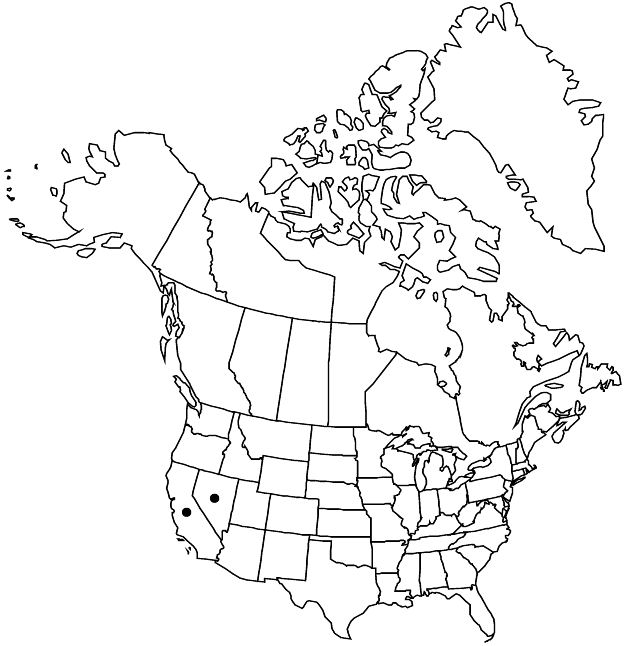Difference between revisions of "Prunus andersonii"
Proc. Amer. Acad. Arts 7: 337. 1868.
FNA>Volume Importer |
imported>Volume Importer |
||
| Line 51: | Line 51: | ||
|publication year=1868 | |publication year=1868 | ||
|special status=Endemic | |special status=Endemic | ||
| − | |source xml=https:// | + | |source xml=https://bibilujan@bitbucket.org/aafc-mbb/fna-data-curation.git/src/bb6b7e3a7de7d3b7888a1ad48c7fd8f5c722d8d6/coarse_grained_fna_xml/V9/V9_614.xml |
|subfamily=Rosaceae subfam. Amygdaloideae | |subfamily=Rosaceae subfam. Amygdaloideae | ||
|tribe=Rosaceae tribe Amygdaleae | |tribe=Rosaceae tribe Amygdaleae | ||
Revision as of 00:31, 28 May 2020
Shrubs, suckering unknown, much branched, 10–20(–30) dm, thorny. Twigs with axillary end buds, usually glabrous, rarely puberulent. Leaves deciduous; ± sessile; blade narrowly elliptic, obovate, oblanceolate, or spatulate, 1–3 × 0.2–0.6 cm, base long-attenuate, margins usually serrulate, sometimes obscurely, teeth blunt, inconspicuously glandular, apex usually acute, sometimes obtuse, surfaces usually glabrous, sometimes puberulent. Inflorescences solitary flowers or 2-flowered fascicles. Pedicels (1–)4–12 mm, glabrous. Flowers blooming at leaf emergence; hypanthium campanulate, 3–4 mm, usually glabrous, rarely puberulent externally; sepals spreading, triangular, 1.5–2.5 mm, margins sparsely glandular-toothed, ciliate, surfaces glabrate; petals usually dark pink, sometimes nearly white, elliptic, obovate, or suborbiculate, (5–)8–11 mm; ovaries hairy. Drupes greenish yellow to red-orange, globose to asymmetrically obovoid, compressed, 10–18 mm, base cuneate-stipitate, apex mucronate, densely puberulent; hypanthium persistent; mesocarps leathery to dry (often splitting); stones ellipsoid to subglobose, ± flattened.
Phenology: Flowering Mar–May; fruiting Jun–Aug.
Habitat: Dry rocky slopes, washes, canyons, sagebrush scrub, pinyon-juniper woodlands
Elevation: 900–2600 m
Discussion
Prunus andersonii inhabits the Great Basin Desert region of central and western Nevada, ranging westward into California to the eastern slopes of the Sierra Nevada from Modoc County south to Inyo County.
Selected References
None.
